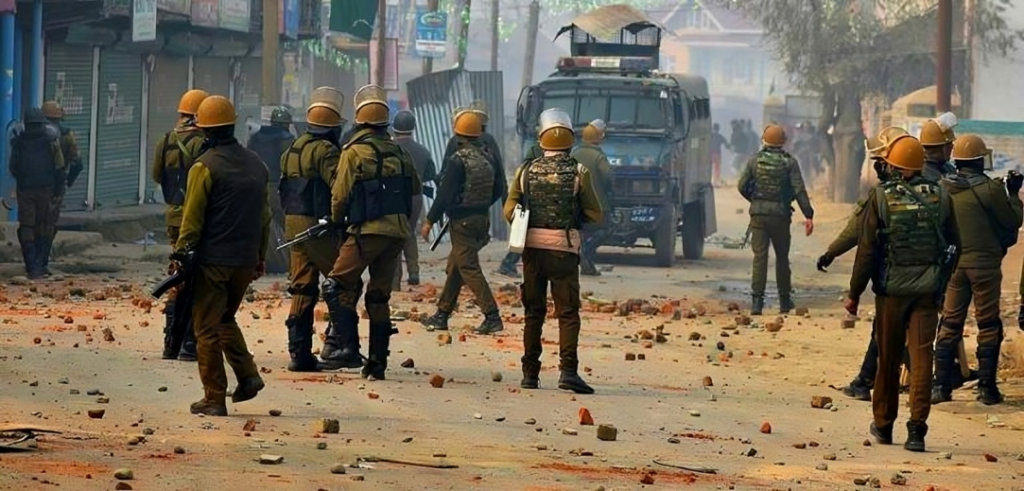Being Critical of Kashmir’s Abrogation is not an Offence; SC Quashes Case Against a Kashmiri Professor for Condemning the Scraping of Article 370

Image Source: Astrotalk
Yesterday, the Supreme Court dismissed a case against Javed Ahmed Hajam, a Kashmiri professor at a Kolhapur college in Maharashtra who was booked under Section 153-A of IPC, concerning his Whatsapp status denouncing the abolition of the special status of J&K and, commemorated Pakistan’s independence day, the status reportedly called the abrogation a black day for the State.The Bombay High Court had earlier rejected to revoke the FIR(First Information Report) registered against him on the grounds of inciting enmity and disharmony.
Justice Abhay S Oka & Ujjal Bhuyan, while rescinding the case lodged on the grounds of Section 153-A of IPC, denied any existence of Mens ria that is an integral element of crime, and invoked the fundamental right of a citizen, they said, “The constitution of India under Article 19(1)(a) guarantees freedom and speech of expression, every citizen has the right to offer criticism of the action of abrogation of Article 370, or for that matter every decision of the State; he has the right to say he is unhappy with any of their decisions. The intention to cause disorder or incite people to violence is the sine qua non of the offence under Section 153-A IPC & the prosecution has to prove the existence of mens ria in order to succeed. On a plain reading, the appellant intended to criticize the action of the abrogation. If every criticism or protest of the actions of the State is to be held as an offense, democracy, which is an essential feature of the Constitution of India, will not survive.” it further called the act of the appellant “an expression of protest and anguish.“
“The right to dissent in a lawful manner must be treated as a part of the right to lead a dignified and meaningful life guaranteed by Article 21. But the protest or dissent must be within the four corners of the modes permissible in a democratic set-up. It is subject to reasonable restrictions imposed in accordance with clause (2) of Article 19. In the present case, the appellant has not at all crossed the line.” the bench added.
While reflecting upon the celebration of Pakistani Independence Day, the court opined, “We are of the view that it will not attract any clause of Section 153-A of IPC; Every citizen has the right to extend good wishes, there is nothing wrong with it. It’s a gesture of goodwill, such acts do not tend to create disharmony or feelings of enmity, hatred, or ill-will. Motives cannot be attributed to the appellant only because he belongs to a particular religion. The time has come to enlighten and educate our police machinery on the concept of freedom of speech and expression and the extent of reasonable restraint on their free speech and expression.” Evidently, the picture contained a Chand, and beneath the image, it read “14th August Happy Independence Day Pakistan.”
The court underscored the essence of dissent in our country and highlighted the freedom to express discontent with their decisions. It laid meticulous stress on Section 153-A of IPC and dissected the whole section, saying, “It is attracted when by words, either spoken or written or by signs or by visible representations or otherwise, an attempt is made to promote disharmony or feelings of enmity, hatred or ill-will between different religious, racial, language or regional groups or castes or communities; The promotion of disharmony must be on the grounds of religion, race, place of birth, residence, language, caste, community, or any other analogous grounds. Clause (b) will only apply when a prejudicial act is committed that disturbs or is likely to disturb the public; the effect of the words used on his status will have to be judged from the standards of reasonable men and women.”
While denying the High Court’s rationale of the possibility of provoking the emotions of a group of people, the apex court held that “We cannot apply the standards of people with weak and vacillating minds. The test to be applied is not the effect of the words on some individuals with hostile minds who see a danger in every point of view. The test is of a general impact of the utterances on reasonable people. The acts do not reflect any intention to do anything which is prohibited under Section 153-A. At best, it is a protest which is a part of his freedom of speech and expression under Article 19(1)(a).”
Team Profile

- News Writer
- Rahul Tiwari, a law student, possesses a keen interest in politics, movies, music, and the pop culture landscape. Equipped with an unyielding spirit for writing, he navigates through his diverse interests with enthusiasm and dedication.
Latest entries
 English10 March 2024Rahul Gandhi to Contest from His Former Seat of Wayanand in the Lok Sabha Elections, Shashi Tharoor to Contest from His Citadel; Everything You Need to Know About Their List
English10 March 2024Rahul Gandhi to Contest from His Former Seat of Wayanand in the Lok Sabha Elections, Shashi Tharoor to Contest from His Citadel; Everything You Need to Know About Their List English8 March 2024Being Critical of Kashmir’s Abrogation is not an Offence; SC Quashes Case Against a Kashmiri Professor for Condemning the Scraping of Article 370
English8 March 2024Being Critical of Kashmir’s Abrogation is not an Offence; SC Quashes Case Against a Kashmiri Professor for Condemning the Scraping of Article 370 English7 March 2024SBI Misses Deadline for Electoral Bonds Disclosure; Opposition Calls It Dubious
English7 March 2024SBI Misses Deadline for Electoral Bonds Disclosure; Opposition Calls It Dubious English7 March 2024GN Saibaba, Former DU Professor & Scholar, Granted Acquittal from Bombay HC in an Alleged Maoist Case
English7 March 2024GN Saibaba, Former DU Professor & Scholar, Granted Acquittal from Bombay HC in an Alleged Maoist Case









